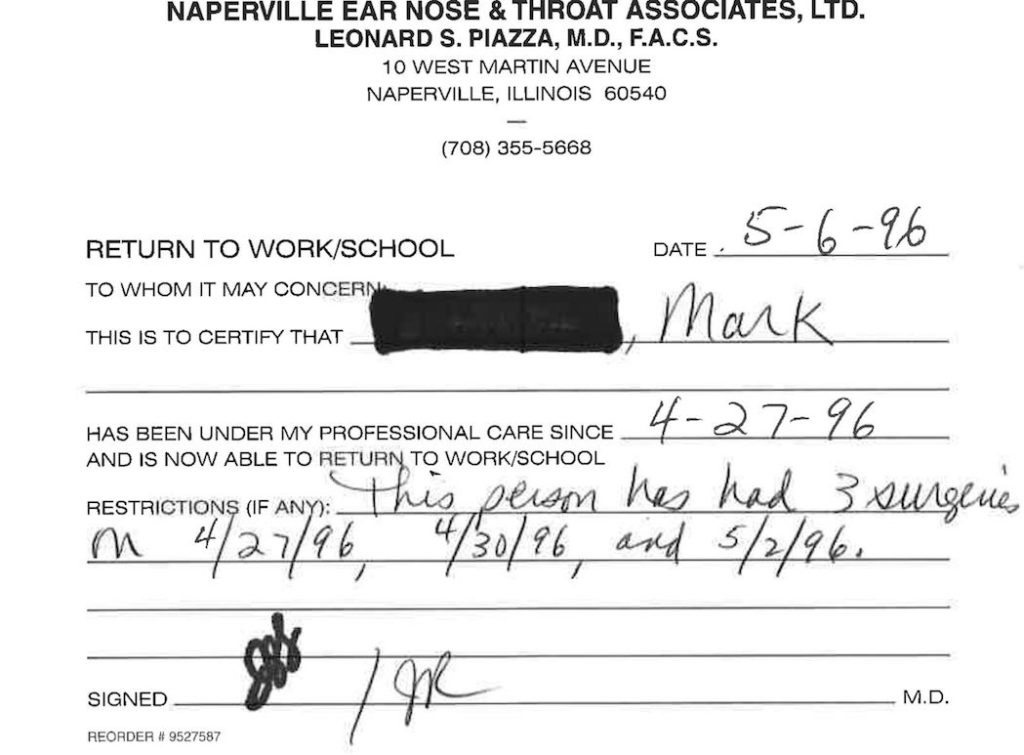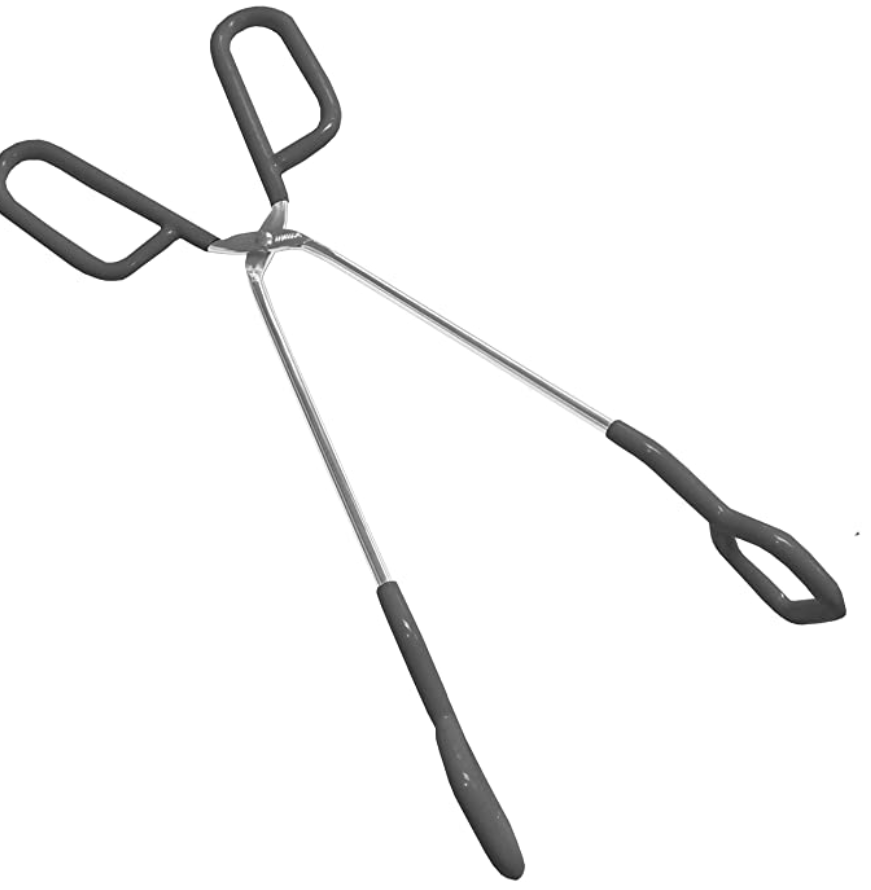
About twenty-five years ago, one of my tonsils died.
It became a lump of dead tissue, joined with the other, still living, tonsil only by their shared infection in and around my throat. In the middle of a Friday night, I looked in the mirror and they were touching. My airway was completely closed off.
My wife drove me to the emergency room, where I sat for the next six hours or so, until their ENT specialist could be reached (and, I speculate, sobered out, but I digress). When he arrived, that Saturday morning (looking a little bedraggled), he settled in and looked at my tonsils. He then told me it was an abscess and brought out a tool by which he intended to drain the puss out of the infected tonsils. For all the world, it looked like Toilet-Aid Tongs for Self-Wiping.

This was to be the first of those three surgeries that the doctor’s note mentioned. He was sitting on a little stool with wheels, while I was seated in one of those wide-metal based dentist’s chairs with the attached armature and lamp overhead. After warning me that it ‘might hurt a bit’, he then proceeded to reach into my throat with the tongs.
Continue reading “Remembering the Pain”

